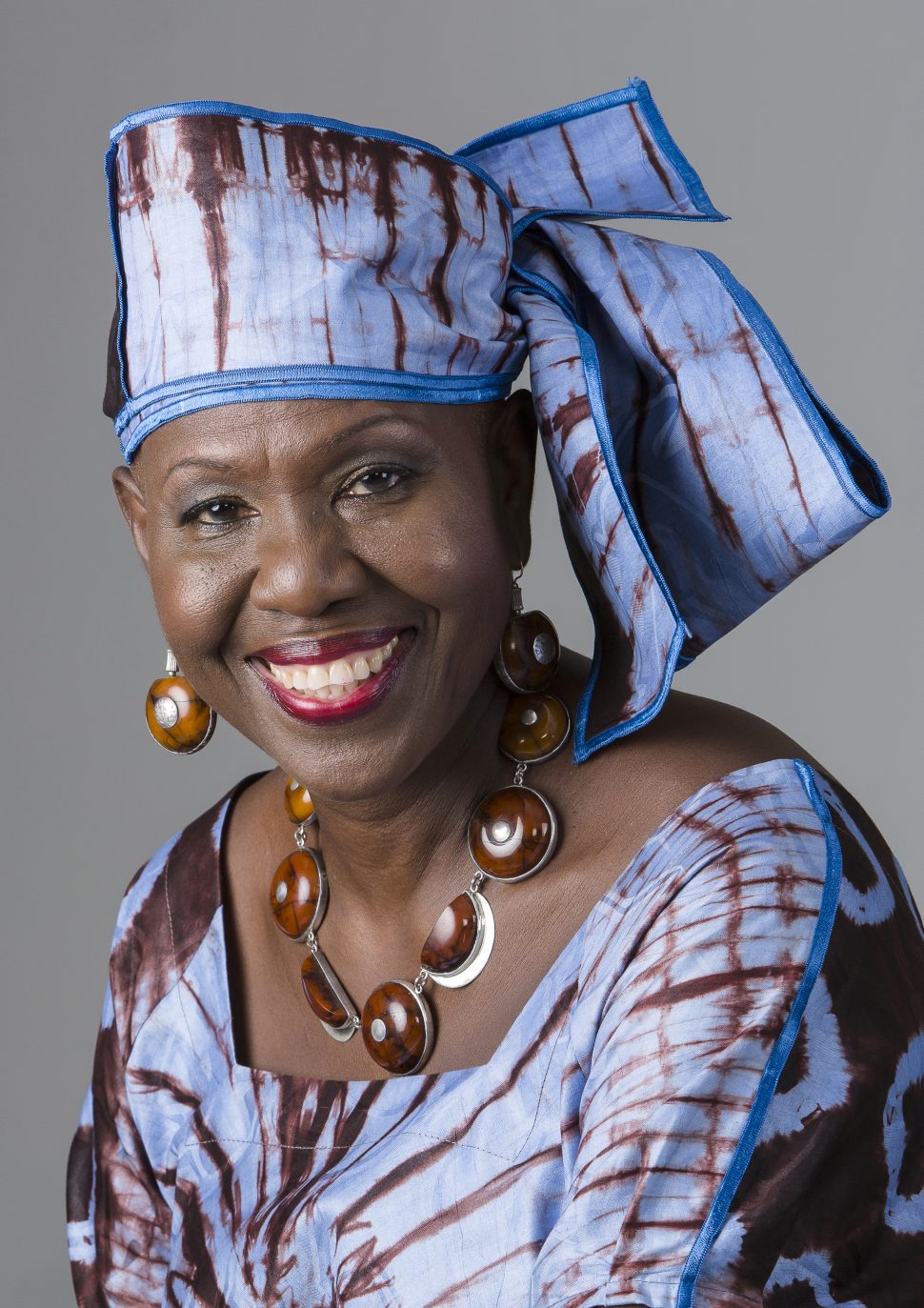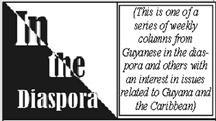Carolyn Cooper is Professor of Literary and Cultural Studies at the University of the West Indies, Mona, Jamaica. In the 1980’s, she was an active member of the Women’s Studies Working Group at Mona. She also contributes a column to the Jamaica Gleaner newspaper. This essay originally appeared in the Gleaner on Sunday March 10, 2019. We follow it with the statement of solidarity with abortion rights and pro-choice Jamaicans that was issued by Red Thread Guyana.
The facts are bloodcurdling. The Partnership for Women’s Health and Well-being has issued a grave reminder that we simply cannot ignore. “The practice of unsafe abortions and the consequences of abortions performed by untrained non-specialist physicians can result in a number of complications for women, including: severe infections, gangrene in the uterus, hemorrhaging, tearing of the cervix, uterine perforation, laceration of the vaginal wall and untimely death”.
The World Health Organisation estimates that twenty-two thousand abortions are performed in Jamaica every year. Our outdated laws make most of these abortions illegal. How many of them are fatal? The Partnership for Women’s Health and Well-being highlights the fact that, “Complications arising from unsafe abortion are among the top 10 causes of maternal mortality in Jamaica, especially among teenagers”.
Why is the death of a woman caused by a high-risk abortion less of an outrage than the termination of a pregnancy? Why do the presumed rights of a foetus supposedly take precedence over the actual rights of a human being? Why are Jamaican girls and women still forced to gamble with our lives in order to claim fundamental legal rights and freedoms that protect our reproductive health?
Offences against the person
The 1864 Offences Against the Person Act was passed a mere 30 years after the abolition of slavery. All of a sudden, a foetus was much more valuable than millions of enslaved Africans who were seen as beasts of burden and therefore entirely fit subjects for protracted abuse. Their lives needed no protection.
An unborn ‘person’ now had more rights than actual persons who still had vivid memories of being brutalised by enslavement. Did this act have any moral authority? Or was it intended to ensure the availability of an unending supply of cheap labour? These questions are not as far-fetched as they may seem.
Historians confirm that enslaved African women aborted foetuses or even committed acts of infanticide in order to ensure that their children would not become victims of slavery. Ironically, these militant women claimed reproductive freedoms that their supposedly emancipated descendants are still denied in Jamaica today.
It took more than a century for Jamaica’s outdated abortion laws to be modified. In 1975, the Ministry of Health in a Statement of Policy on Abortion made it “lawful for a registered medical practitioner acting in good faith to take steps to terminate the pregnancy of any woman if … he forms the opinion that the continuation of the pregnancy would be likely to constitute a threat to the life of the woman or inure [work] to the detriment of her mental and physical health”.
The Statement of Policy called for amendment of the Offences Against the Person Act (1864) in order to clarify the circumstances in which abortion could be deemed lawful in Jamaica – such as in cases of rape, carnal abuse and incest. Forty-four years later the antiquated act has still not been amended.
Uptown, midtown, downtown
Not surprisingly, uptown Jamaican women can get safe, legal abortions quite easily. Money is power. Downtown women are forced to resort to dangerous measures. And as for the unfortunate working-class teenager who is suffering from an unwanted pregnancy! Dog nyam her supper. She does not have the money to hire a doctor who will testify that the pregnancy is detrimental to her physical and mental health.
As a teacher, I’ve had to do counselling way beyond the call of academic duty. Several years ago, an uptown university student confided that she was pregnant. She was terrified to tell her mother. I assured her that her mother would understand. In two twos the abortion was done and she was back in class. It’s a completely different story for the working-class teenager who gets pregnant. She’s often forced to have the baby. And she’s usually thrown out of school. Her life mash up!
Uptown, midtown and downtown Jamaican women must join forces to repeal the so-called Offences Against the Person Act. We are the persons that the officious Act is offending. All Jamaican women who have had abortions, ‘legal’ and ‘illegal’, must shamelessly speak out, affirming our right to control our own bodies.
If women would tell the truth, many men would be alarmed to discover that their pious-looking wife has had an abortion. Women know how to play fool to ketch wise. That’s how many of us have survived abusive relationships. It’s high time to stop fooling around. We must collectively confront our oppressors. There is safety in numbers.
American feminist Gloria Steinem highlighted the dynamics of unequal gender relations in this famous quip, “If men could get pregnant, abortion would be a sacrament”. Terminating pregnancy would be a religious ceremony like baptism. It would confirm that man, as in the male of the species, is divinely blessed.
Steinem’s statement sounds sacrilegious. It was intended to shock. But it’s no more shocking than the way in which women have been demonised for claiming the freedom to decide if we should have a child. It’s almost two centuries since slavery was abolished. Women must emancipate ourselves now from patriarchal domination.
Solidarity statement from Red Thread Guyana to all abortion-rights/pro-choice Jamaicans, issued on February 28, 2019
Greetings from Red Thread, Guyana as we stand with our sisters in Jamaica and the men who support them in your campaign for the decriminalisation of abortion in Jamaica.
More than 20 years ago, women in Guyana, led by the then Minister of Health and supported by some men, successfully campaigned for the legalisation of the medical termination of pregnancy. Women in this campaign were of all classes, but as grassroots women we took the campaign personally. There was information that incomplete and unsafe abortions were among the leading causes of maternal deaths and morbidity, and we knew from the evidence of our own lives that it was women like us – grassroots women – who couldn’t afford to pay the high costs that private institutions were charging for abortions by qualified doctors, who were left with no choice but “bottom house” or “back street” abortions.
We knew that abortions were rampant in Guyana, and that they were not being accessed, as elements of the church insisted, by girls and women who were “sinful” but by girls and women who sat next to our opponents in their pews. Like most working class women in Guyana across race, we are religious. We sit in those pews.
We believe that women must have the right to choose to have, or not have a child and at the moment grassroots women don’t have either right. As one Red Thread woman wrote many years ago: If women decide to terminate a pregnancy it’s everybody’s business; if we decide to carry the foetus to term, it’s our baby. Our responsibility alone.
No one has an abortion for the sake of doing it. Women have abortions because we can’t afford to raise a child; because the reason we became pregnant was because we didn’t have access to or knowledge about contraceptives or because we didn’t have the power to bargain for the use of contraceptives (or even less, to say no to sex) or because we were raped. We have abortions because we have a medical condition which makes pregnancy dangerous. We have abortions because the terms of our employment stipulate that we’re not “allowed” to be pregnant for the first two or three years on the job. Some of these employers also like to talk about who is sinful.
Our battle is not a battle for abortion on demand. It is a battle for our reproductive and sexual health and rights and it is worldwide. Slowly – too slowly – we are winning.
Power to our sisters who are leading the battle in Jamaica!


